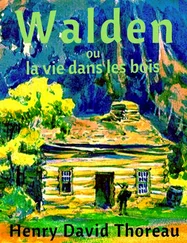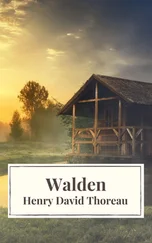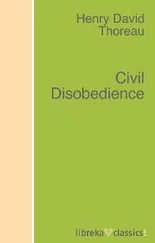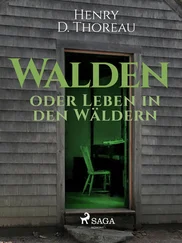Man's little acts are grand,
Beheld from land to land,
There as they lie in time,
Within their native clime
Ships with the noontide weigh,
And glide before its ray
To some retired bay,
Their haunt,
Whence, under tropic sun,
Again they run,
Bearing gum Senegal and Tragicant.
For this was ocean meant,
For this the sun was sent,
And moon was lent,
And winds in distant caverns pent.
Since our voyage the railroad on the bank has been extended, and there is now but little boating on the Merrimack. All kinds of produce and stores were formerly conveyed by water, but now nothing is carried up the stream, and almost wood and bricks alone are carried down, and these are also carried on the railroad. The locks are fast wearing out, and will soon be impassable, since the tolls will not pay the expense of repairing them, and so in a few years there will be an end of boating on this river. The boating at present is principally between Merrimack and Lowell, or Hooksett and Manchester. They make two or three trips in a week, according to wind and weather, from Merrimack to Lowell and back, about twenty-five miles each way. The boatman comes singing in to shore late at night, and moors his empty boat, and gets his supper and lodging in some house near at hand, and again early in the morning, by starlight perhaps, he pushes away up stream, and, by a shout, or the fragment of a song, gives notice of his approach to the lock-man, with whom he is to take his breakfast. If he gets up to his wood-pile before noon he proceeds to load his boat, with the help of his single "hand," and is on his way down again before night. When he gets to Lowell he unloads his boat, and gets his receipt for his cargo, and, having heard the news at the public house at Middlesex or elsewhere, goes back with his empty boat and his receipt in his pocket to the owner, and to get a new load. We were frequently advertised of their approach by some faint sound behind us, and looking round saw them a mile off, creeping stealthily up the side of the stream like alligators. It was pleasant to hail these sailors of the Merrimack from time to time, and learn the news which circulated with them. We imagined that the sun shining on their bare heads had stamped a liberal and public character on their most private thoughts.
The open and sunny interval still stretched away from the river sometimes by two or more terraces, to the distant hill-country, and when we climbed the bank we commonly found an irregular copse-wood skirting the river, the primitive having floated down-stream long ago to——the "King's navy." Sometimes we saw the river-road a quarter or half a mile distant, and the particolored Concord stage, with its cloud of dust, its van of earnest travelling faces, and its rear of dusty trunks, reminding us that the country had its places of rendezvous for restless Yankee men. There dwelt along at considerable distances on this interval a quiet agricultural and pastoral people, with every house its well, as we sometimes proved, and every household, though never so still and remote it appeared in the noontide, its dinner about these times. There they lived on, those New England people, farmer lives, father and grandfather and great-grandfather, on and on without noise, keeping up tradition, and expecting, beside fair weather and abundant harvests, we did not learn what. They were contented to live, since it was so contrived for them, and where their lines had fallen.
Our uninquiring corpses lie more low
Than our life's curiosity doth go.
Yet these men had no need to travel to be as wise as Solomon in all his glory, so similar are the lives of men in all countries, and fraught with the same homely experiences. One half the world knows how the other half lives.
About noon we passed a small village in Merrimack at Thornton's Ferry, and tasted of the waters of Naticook Brook on the same side, where French and his companions, whose grave we saw in Dunstable, were ambuscaded by the Indians. The humble village of Litchfield, with its steepleless meeting-house, stood on the opposite or east bank, near where a dense grove of willows backed by maples skirted the shore. There also we noticed some shagbark-trees, which, as they do not grow in Concord, were as strange a sight to us as the palm would be, whose fruit only we have seen. Our course now curved gracefully to the north, leaving a low, flat shore on the Merrimack side, which forms a sort of harbor for canal-boats. We observed some fair elms and particularly large and handsome white-maples standing conspicuously on this interval; and the opposite shore, a quarter of a mile below, was covered with young elms and maples six inches high, which had probably sprung from the seeds which had been washed across.
Some carpenters were at work here mending a scow on the green and sloping bank. The strokes of their mallets echoed from shore to shore, and up and down the river, and their tools gleamed in the sun a quarter of a mile from us, and we realized that boat-building was as ancient and honorable an art as agriculture, and that there might be a naval as well as a pastoral life. The whole history of commerce was made manifest in that scow turned bottom upward on the shore. Thus did men begin to go down upon the sea in ships; quaeque diu steterant in montibus altis, Fluctibus ignotis insultavęre carinae; "and keels which had long stood on high mountains careered insultingly ( insultav ę re ) over unknown waves." (Ovid, Met. I. 133.) We thought that it would be well for the traveller to build his boat on the bank of a stream, instead of finding a ferry or a bridge. In the Adventures of Henry the fur-trader, it is pleasant to read that when with his Indians he reached the shore of Ontario, they consumed two days in making two canoes of the bark of the elm-tree, in which to transport themselves to Fort Niagara. It is a worthy incident in a journey, a delay as good as much rapid travelling. A good share of our interest in Xenophon's story of his retreat is in the manoeuvres to get the army safely over the rivers, whether on rafts of logs or fagots, or sheep-skins blown up. And where could they better afford to tarry meanwhile than on the banks of a river?
As we glided past at a distance, these out-door workmen appeared to have added some dignity to their labor by its very publicness. It was a part of the industry of nature, like the work of hornets and mud-wasps.
The waves slowly beat,
Just to keep the noon sweet,
And no sound is floated o'er,
Save the mallet on shore,
Which echoing on high
Seems a-calking the sky.
The haze, the sun's dust of travel, had a Lethean influence on the land and its inhabitants, and all creatures resigned themselves to float upon the inappreciable tides of nature.
Woof of the sun, ethereal gauze,
Woven of Nature's richest stuffs,
Visible heat, air-water, and dry sea,
Last conquest of the eye;
Toil of the day displayed sun-dust,
Aerial surf upon the shores of earth.
Ethereal estuary, frith of light,
Breakers of air, billows of heat
Fine summer spray on inland seas;
Bird of the sun, transparent-winged
Owlet of noon, soft-pinioned,
From heath or stubble rising without song;
Establish thy serenity o'er the fields
The routine which is in the sunshine and the finest days, as that which has conquered and prevailed, commends itself to us by its very antiquity and apparent solidity and necessity. Our weakness needs it, and our strength uses it. We cannot draw on our boots without bracing ourselves against it. If there were but one erect and solid standing tree in the woods, all creatures would go to rub against it and make sure of their footing. During the many hours which we spend in this waking sleep, the hand stands still on the face of the clock, and we grow like corn in the night. Men are as busy as the brooks or bees, and postpone everything to their business; as carpenters discuss politics between the strokes of the hammer while they are shingling a roof.
Читать дальше












